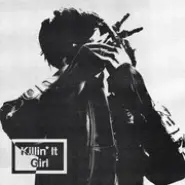
>
Please note that most of the text is in the Indonesian language, so you may want to consider translating it if you are not familiar with the language. I apologize if some of the pages are a bit messy here.
>
Please note that most of the text is in the Indonesian language, so you may want to consider translating it if you are not familiar with the language. I apologize if some of the pages are a bit messy here.
https://www.scribd.com/document/879463218/TUGAS-UAS-BAHASA-INDONESIA-2-Membuat-Esai-Bertemakan-Musik
https://www.scribd.com/document/879463218/TUGAS-UAS-BAHASA-INDONESIA-2-Membuat-Esai-Bertemakan-Musik
Translated to English: This essay examines the creative process behind Abu Nailah’s reimagination of the song "High School in Insance", which is an interpretation of the song "High School in Jakarta" by NIKI. Through an analysis of musical...
Translated to English: This essay examines the creative process behind Abu Nailah’s reimagination of the song "High School in Insance", which is an interpretation of the song "High School in Jakarta" by NIKI. Through an analysis of musical elements, lyrics, and cultural context, the author explores how Abu Nailah combines personal experiences and contemporary musical influences in his work. The essay also highlights the importance of copyright and regulation in the music industry concerning song reimagination.

Tidakkah kalian denger Mubarak bakal studi ke California? Tahun 2020: Akhir dari Darussalam-nya gue Awal tahun bakal anjlok sedikit lebih sulit Soalnya, ya, COVID-19 memperburuk segala sesuatunya (kami bahkan gada wisuda, hayya)
Tidakkah kalian denger Mubarak bakal studi ke California? Tahun 2020: Akhir dari Darussalam-nya gue Awal tahun bakal anjlok sedikit lebih sulit Soalnya, ya, COVID-19 memperburuk segala sesuatunya (kami bahkan gada wisuda, hayya)
Sempat bingung rasanya pen lanjutin sekolah kek mana Makasi beut buat ortu, besfrends, dan guru2 saya Dari merekalah terketemukan juga toh Gua benci sumpa keingat waktu itu gua cuma gengsian doang
Sempat bingung rasanya pen lanjutin sekolah kek mana Makasi beut buat ortu, besfrends, dan guru2 saya Dari merekalah terketemukan juga toh Gua benci sumpa keingat waktu itu gua cuma gengsian doang
Jadi diadakanlah tes masuk, hampir ga ngelakuin apa2 Pas lagi ngerjain, panas otak gua (salah sendiri) (gibberish), pada akhirnya lolos2 aja walau jadine siswa cadangan, hemh
Jadi diadakanlah tes masuk, hampir ga ngelakuin apa2 Pas lagi ngerjain, panas otak gua (salah sendiri) (gibberish), pada akhirnya lolos2 aja walau jadine siswa cadangan, hemh
Sekolah di MAN IC, agaknya Islami modern Memiliki peluang besar untuk menjadi jenius...
Sekolah di MAN IC, agaknya Islami modern Memiliki peluang besar untuk menjadi jenius religius bin independen Kita pernah ‘duduk’ di sekul tsb, terima kasih kepada guru2 hebat kami Ya, nampaknya sulit, tapi gua bakal lebih kuat
Sekolah di MAN IC, kek another level aja gitu Gua ga suka aja dah dilakuin kek gini, ngarep2 lebih pinter, lol Suka ga suka ama mapelnya, dan begitu juga gue Itu bisa berakhir berbeda; tergantung orangnya, ya, sekolah menengah di Insance
MK nugas kelompok, gua seringnya nyampah doang Ga di prestasi jga temenan sama aja, kek serasa ga diajak (bprn gw-nya) Saking gabudnya kek gada yang bisa gua kontribusiin Kebiasaan ‘nopeng’; aslinya, ya, penyakitan bin capee
Kek gitulah aink, tetapi mereka masi baik bgt ke gua Gua cuma kek ga bisa nyempurnain buat… Terlihat lebih baik seiring beranjak dewasa Apakah saya lebih baik sekarang karena hal itu?
Sekolah di MAN IC, agakne Islami bin modern Bisa menjadi si ‘prestasi-mandiri-Islami’ (Islami terakhir, ygy //jk) “Didadak, diduduk, dan dididik,” tenqyu bin syukron, ustaz-ustazah Yea, nampaknya rumit sie, mo ga mau harus stay seterong
Sekolah menengah atas di IC, kompetitif dalam berbagai hal Gak lek aja dah dijadiin begini, harap2 ramah, ya, bundz Suka ga suka ama berbagai event-nya, yea, gw jg Jalannya bisa beda bergantung pada kaliannya kek mana di IC-nya
Terdapat ex-bsf (alias putus shbt; yg dah tau diem aj) Seinget gua break up pas Oktober Sekarang, we lanjut di Jogja (ISIYK uwuwuw) Sad, bro, ga bisa lagi shbtan kitanya (y udh lh)
Taun2 ini temenan ama adkel (kek ginilah bisa ketemu temen2 loe, woey; OMG, kwkwk) Pindahnya bulan Mei ato lebih (klo ga slh) Walau dah buat gua mubazir-in air mata gw Setidaknya, ya…, cukup tw
Cekula di MAN ICek, +62 berflower Anti ama demoralisasi dan kehasadan (masya Allah, tabarakallah) Kadang broken hert, kadang jadi si paling “senangnya hatikuh” Bangga dpt segalanya dgn sulit, jdi gw bakal lbh kuat (angfah imyacght?)
Esemah di Insan Cendekia, “Kaga, deh,” tau-tau dah angkat kaki Tanya diri loe kapan mau peduli; apa bahkan loe berani, huh? Ucapkan terima kasih kepada ibu & ayahmu, toh kita jg dah, “Fine!” Pada akhirnya bisa beda, Gb; “Bakal selesai, po?” That’s it: Sekolah di MAN IC (klo kata gua, sie; fyi, gua di IC Batam, ygy)

🎧 Analysis of “High School in Insance” by Abu Nailah Prescript: If the previous section tends to be more about its compositions, techniques, and of their kind, this section tends to be more about the lyrics deeply.
🎧 Analysis of “High School in Insance” by Abu Nailah Prescript: If the previous section tends to be more about its compositions, techniques, and of their kind, this section tends to be more about the lyrics deeply.
Introduction “High School in Insance,” Abu Nailah’s poignant reimagining of NIKI’s “High School in Jakarta,” transforms a globally resonant coming-of-age narrative into a deeply personal reflection on his formative years in an Islamic modern high school. This cover, laden with raw vulnerability, humor, and bittersweet admissions, navigates the complexities of adolescence, self-worth, friendship breakdowns, and spiritual growth within a uniquely Indonesian educational context. Abu’s lyrical...
Introduction “High School in Insance,” Abu Nailah’s poignant reimagining of NIKI’s “High School in Jakarta,” transforms a globally resonant coming-of-age narrative into a deeply personal reflection on his formative years in an Islamic modern high school. This cover, laden with raw vulnerability, humor, and bittersweet admissions, navigates the complexities of adolescence, self-worth, friendship breakdowns, and spiritual growth within a uniquely Indonesian educational context. Abu’s lyrical adaptation balances critique and gratitude, crafting a song that is simultaneously a confession, a farewell, and an ode to resilience.
Verse-by-Verse Interpretation 🔹 Verse 1: “Didn‘t you hear Mubarak‘s will go ‘broad to California?…” The song opens with conversational realism, referencing peers moving abroad and the end of his time at ITDar (an abbreviation of his previous school). The sudden intrusion of COVID-19 intensifies the chaos of freshman year, shifting youthful excitement into isolation and disappointment. His sarcastic laughter about cancelled graduations hints at internalised sadness masked by humour. Gratitude towards family, friends, and teachers weaves through his frustration, anchoring his instability with communal support.
🔹 Pre-Chorus 1: “So, there’s a test (a test), almost done nothin’…” This segment illustrates academic burnout: tests blur into meaninglessness, yet fleeting interactions with friends remain mentally impactful (“had my brain burnin’”). His sigh at being a reserve student adds a tone of self-deprecation, revealing insecurities about his rank and perceived worth.
🔹 Chorus 1: “High school in Insance, sorta Islamic modern…” Here, Abu defines “Insance” (likely a stylised pseudonym for his school) as a place of both intellectual and spiritual cultivation. The juxtaposition of “genius independent religious” and the admission of feeling inadequate reveals his struggle with the high standards imposed. The refrain, “Yeah, livin’ under that was tough, but I will be stronger,” embodies his core theme of reluctant growth amid harsh expectations.
🔹 Verse 2: “When in group tasks, I’m often being such a burden…” This verse delves into social self-perception: the narrator feels uninvited, incompetent, and emotionally exhausted, despite outward appearances. His confession, “I lied in being; inside, I was sick and got so tired,” carries intense vulnerability, suggesting silent battles with mental health or burnout.
🔹 Pre-Chorus 2: “I was it, but they were still being nice…” Here, he recognises kindness from peers despite his perceived failures. The rhetorical question, “Am I better now that I’m older?” conveys a deeper anxiety about personal growth, maturity, and the gap between expectation and reality.
🔹 Chorus 2: “High school in Insance, competitive on kinds…” This chorus reiterates the duality of love/hate towards his school: gratitude for teachers coexists with lingering resentment for how it made him feel lesser or unkind. “It could’ve ended differently; you decide it,” implies acceptance of responsibility while also questioning systemic influences.
🔹 Bridge: “Someone is being my ex-best friend…” A tonal shift to intimate storytelling occurs here, revealing the ending of a significant friendship, likely in October, adding to his emotional upheaval. College life in Jogja and newfound friendships with juniors emerge as a bittersweet healing process. The line, “I’m so sad I can’t count on you anymore,” conveys abandoned dependence. Yet, he acknowledges closure with gratitude: “I’m glad that we gave it a go.”
🔹 Chorus 3: “High school in Insance, Indonesia in flower…” The final chorus broadens to national pride (“Indonesia in flower”) while affirming resilience against negativity. Despite feeling “quite heartbroken” behind smiles, he asserts the toughness of his journey as formative strength. The final rhetorical challenge, “Would you make it? Yeah, high school in Insance,” leaves listeners contemplating their own high school experiences, choices, and regrets.
More about the Analysis Literary Devices:
Metaphor: School as a battlefield of intellect, religion, and personal worth. Imagery: Vivid scenes of group tasks, school tests, cancelled graduations, and silent tears. Rhetorical Questions: Enhance introspection and universality. Repetition: The “High school in Insance” refrain anchors nostalgia, pain, and growth. Emotional Tone:
Alternates between humorous sarcasm, melancholic vulnerability, and empowered acceptance. Reflects authentic teenage inner conflicts while embracing cultural and religious influences. Conclusion “High School in Insance” by Abu Nailah is more than a song cover; it is an intimate memoir capturing the often-overlooked nuances of Islamic modern high school life in Indonesia. By blending personal confessions with societal critiques, it offers listeners a window into his unique reality, making his story universally relatable to anyone navigating institutional pressures, the complexities of friendship, and self-doubt. Its honesty and layered emotionality establish Abu Nailah not just as a cover artist but as a storyteller unafraid to reveal the hidden corners of his youth.

🎶 High School in Insance – Song Information “High School in Insance” is a reimagined Indonesian contemporary pop cover song by Abu Nailah, scheduled for release on July 5, 2025. It is an adaptation of “High School in Jakarta” by NIKI, featuring newly written lyrics that narrate the artist’s real experiences in an Indonesian Islamic high school. The song integrates folk-pop instrumentation influences from Lenka’s “Trouble Is a Friend”, creating a mashup-inspired hybrid with deep personal meaning.
🎶 High School in Insance – Song Information “High School in Insance” is a reimagined Indonesian contemporary pop cover song by Abu Nailah, scheduled for release on July 5, 2025. It is an adaptation of “High School in Jakarta” by NIKI, featuring newly written lyrics that narrate the artist’s real experiences in an Indonesian Islamic high school. The song integrates folk-pop instrumentation influences from Lenka’s “Trouble Is a Friend”, creating a mashup-inspired hybrid with deep personal meaning.
📝 Background and Release Originally planned for release in 2024, the song’s debut was delayed after Abu Nailah’s first YouTube channel was hacked, disrupting his planned...
📝 Background and Release Originally planned for release in 2024, the song’s debut was delayed after Abu Nailah’s first YouTube channel was hacked, disrupting his planned release schedule. Despite the setback, the artist continued production and will publish the song on July 5, 2025 via their new channel. The piece reflects Abu Nailah’s resilience and dedication to storytelling through music that resonates with students’ lived experiences during the COVID-19 pandemic.
🎼 Composition and Musical Style Genre: Indonesian Contemporary Pop with folk-pop and Islamic influences.
Key Influences:
Lenka’s “Trouble Is a Friend”: The chord progressions, rhythmic acoustic strumming patterns, and melodic phrasing evoke Lenka’s folk-pop style.
NIKI’s “High School in Jakarta”: Provides the foundational lyrical skeleton and thematic structure, reworked into a new narrative.
Instrumentation:
Acoustic pop piano, synthesizers, and bass guitar progression as a harmonic base.
Digital orchestration resembling rebana and flute to reflect Indonesian Islamic cultural elements.
Drum and percussion emphasizing a gentle but forward-moving rhythm.
Vocal Style:
Contemporary pop vocals with breath-based phrasing in verses, enhancing emotional vulnerability.
Melismatic ornamentation inspired by Islamic vocal aesthetics.
Stronger chest voice delivery in choruses to convey determination and reflection.
🔊 Production Techniques Arrangement:
Hybrid structure that blends melodic fragments of “Trouble Is a Friend” while maintaining the lyrical pacing of “High School in Jakarta,” creating a mashup reimagined adaptation.
Dynamic build-ups from verse to chorus with layered vocal harmonies and minimalistic instrumentation in introspective sections.
Recording Process:
Produced using FL Studio, incorporating MIDI instrumentation to simulate folk-pop textures and traditional Indonesian sounds digitally. Mixing and Mastering:
Focuses on vocal clarity with light reverb to maintain an intimate, confessional tone. 🎧 Themes and Lyrical Interpretation Scroll down to the analysis section for a deep lyrics analysis.
The song explores the bittersweet journey of high school in an Indonesian Islamic boarding school environment, addressing:
Academic and religious pressures: Navigating a highly disciplined educational system.
Pandemic struggles: Online learning challenges and social isolation during COVID-19.
Friendship breakups: Emotional processing of losing close friends during formative years.
Personal growth reflections: Questioning one’s improvement with age and maturity.
Unlike NIKI’s romantic narrative, Abu Nailah’s version focuses on self-development, spiritual resilience, and educational hardships faced by Indonesian students.
📀 Credits and Personnel Vocals and Lyrics Adaptation: Abu Nailah
Composition and Its Adaptation: Abu Nailah, based on NIKI’s “High School in Jakarta”
Production: Abu Nailah (self-produced)
Original Songwriters: Nicole Zefanya (NIKI) et al.
🔗 Release and Availability “High School in Insance” will be released on YouTube and potentially other streaming platforms on July 5, 2025, under Abu Nailah’s new channel following the 2024 hacking incident.
For now, it is featured on Pixelated Pop by BandLab Community Team.
💭 Critical Reception and Audience Interpretation While not yet released, early listeners of demo previews describe the song as:
“Raw and deeply relatable for Indonesian students.”
“A nostalgic and spiritual twist on NIKI’s global hit, capturing real school struggles.”
Fans appreciate the integration of Islamic vocal stylings and local instrumentation that elevate the song beyond a simple cover into a cultural reinterpretation and mashup-based storytelling piece.
📌 Notes “Insance” is a stylized reference to MAN Insan Cendekia, a prestigious Islamic boarding school in Indonesia, reflecting the artist’s educational background.
The artist’s use of multiple musical influences demonstrates the contemporary trend of cultural reimagining within Indonesian pop covers.
✏️ References NIKI’s High School in Jakarta (2022) Lenka’s Trouble Is a Friend (2008) Abu Nailah’s official social media announcements (2024–present)

The lyric isn't "Detours, fences - I get defensive". It's "BE TOO EXPENSIVE - I get defensive".
The lyric isn't "Detours, fences - I get defensive". It's "BE TOO EXPENSIVE - I get defensive".

This song is about (name deleted), the President of the United States, currently.
This song is about (name deleted), the President of the United States, currently.

This track explores themes of emotional cleansing, transformation, and acceptance through the metaphor of a continuous, purifying bath. The song depicts a journey of healing from personal turmoil, where the "infinite baths" symbolize a never-ending process of washing away past pain and seeking peace and rebirth. Ultimately, it highlights the tension between struggle and serenity, emphasizing resilience and the quest for inner balance.
This track explores themes of emotional cleansing, transformation, and acceptance through the metaphor of a continuous, purifying bath. The song depicts a journey of healing from personal turmoil, where the "infinite baths" symbolize a never-ending process of washing away past pain and seeking peace and rebirth. Ultimately, it highlights the tension between struggle and serenity, emphasizing resilience and the quest for inner balance.

This track explores the lingering emotional pain and longing associated with a past relationship that continues to haunt the narrator, primarily through dreams. The song portrays a sense of unresolved emotions and the struggle to come to terms with the past, symbolized by a fleeting, dreamlike presence that leaves behind emotional scars.
This track explores the lingering emotional pain and longing associated with a past relationship that continues to haunt the narrator, primarily through dreams. The song portrays a sense of unresolved emotions and the struggle to come to terms with the past, symbolized by a fleeting, dreamlike presence that leaves behind emotional scars.

Disassociation
Disassociation










I tend to hear the song as being narrated by a sort of muse, who asks Nick (or the listener) what the direction of his life will be.
I tend to hear the song as being narrated by a sort of muse, who asks Nick (or the listener) what the direction of his life will be.
The star as a metaphor brings navigation to mind. And "which will you answer, which will you call" makes me think less of romantic love (although it still could be that, and the ambiguity is something I like about the song) and more about devotion to a cause.
The star as a metaphor brings navigation to mind. And "which will you answer, which will you call" makes me think less of romantic love (although it still could be that, and the ambiguity is something I like about the song) and more about devotion to a cause.
Music can be a hard road -- you choose it knowing that things won't be comfortable, and most likely it won't pan...
Music can be a hard road -- you choose it knowing that things won't be comfortable, and most likely it won't pan out. I can imagine Nick's muse saying, almost sarcastically, "which (path) will you take if you won't take me?" And Nick recounts it to us with a kind of resignation -- he can't just live, he has to choose something to live in service of.